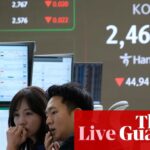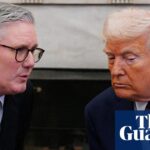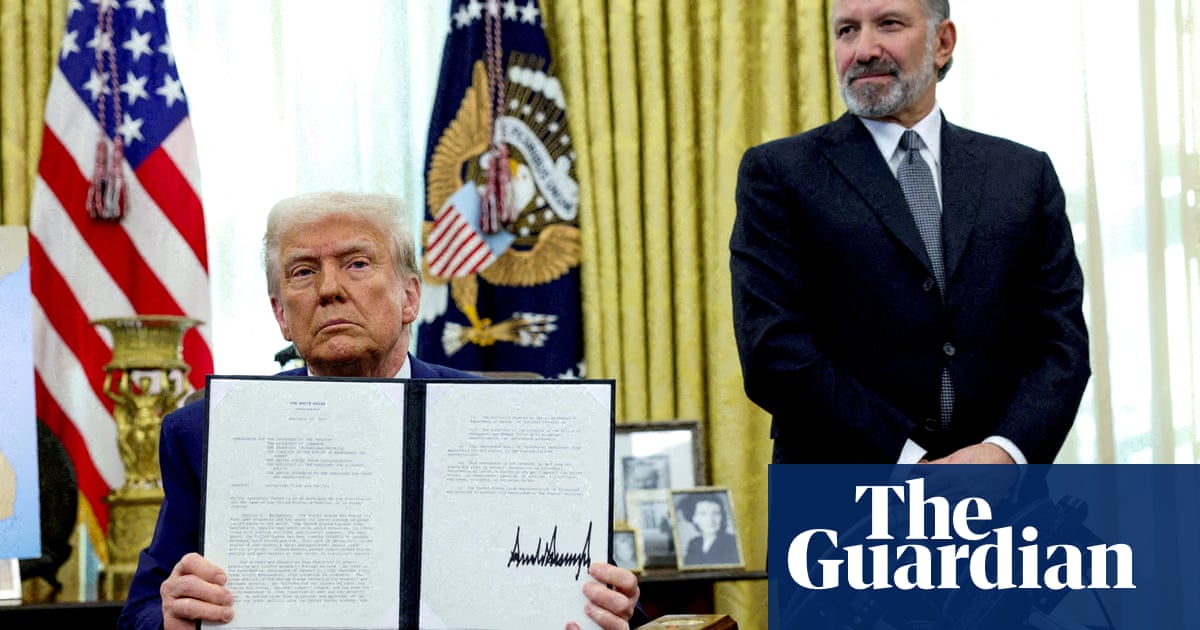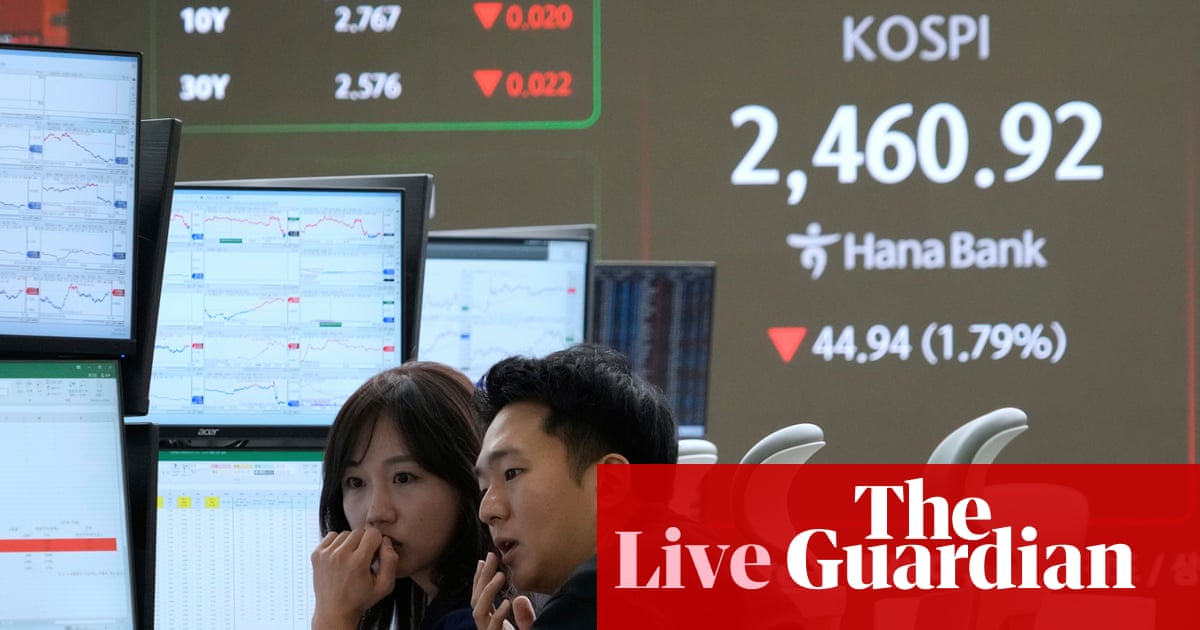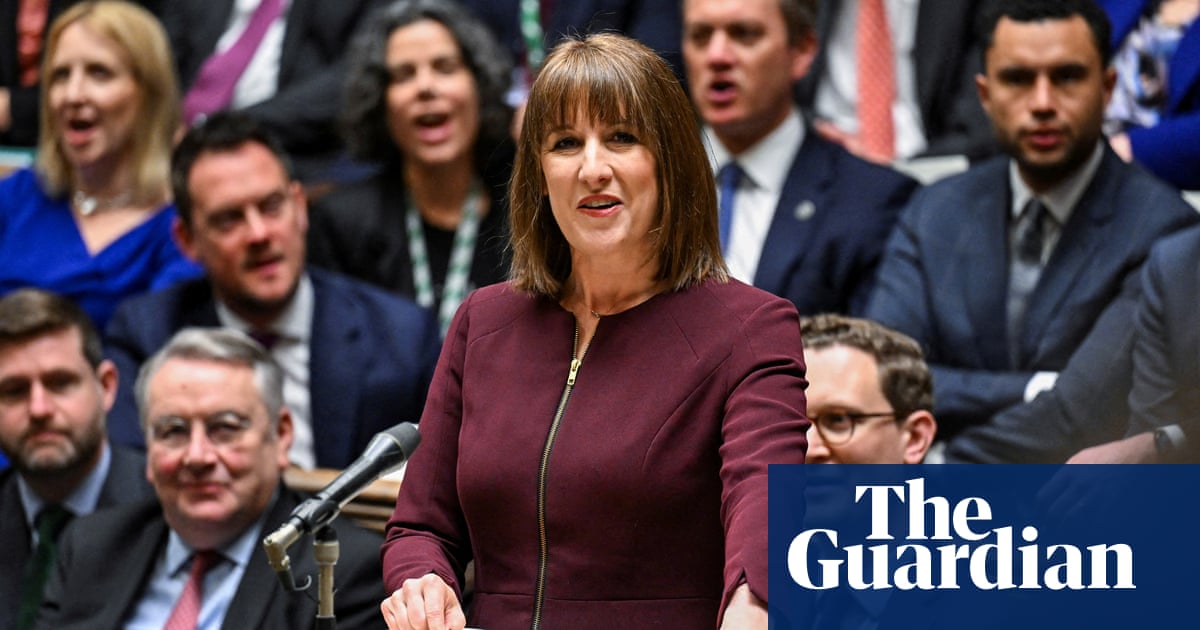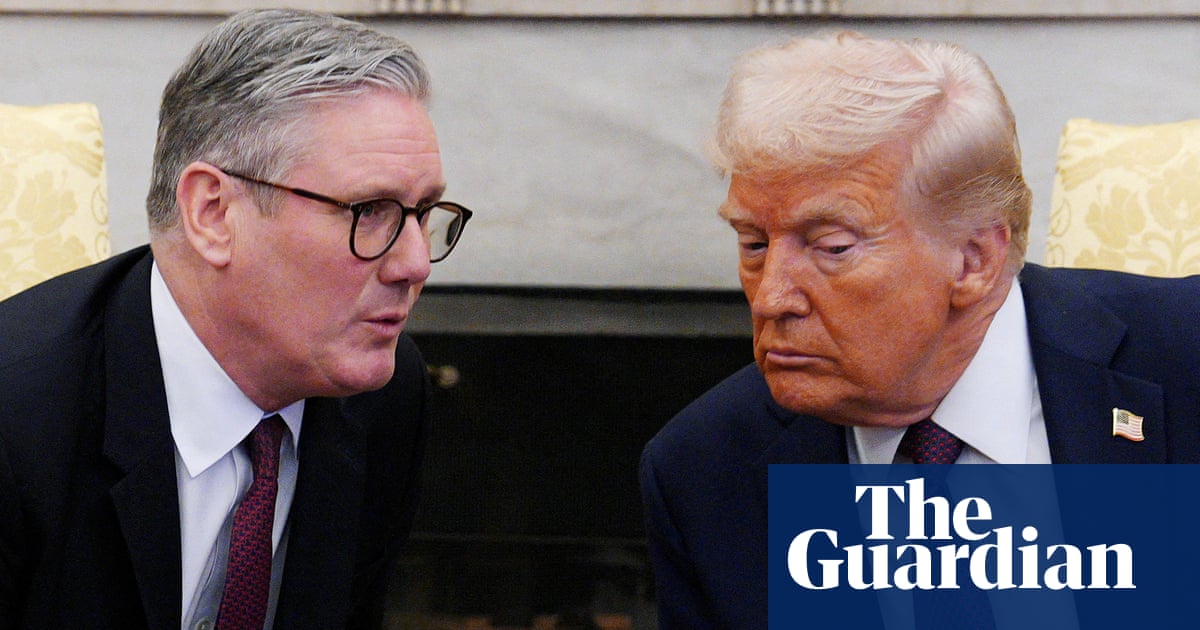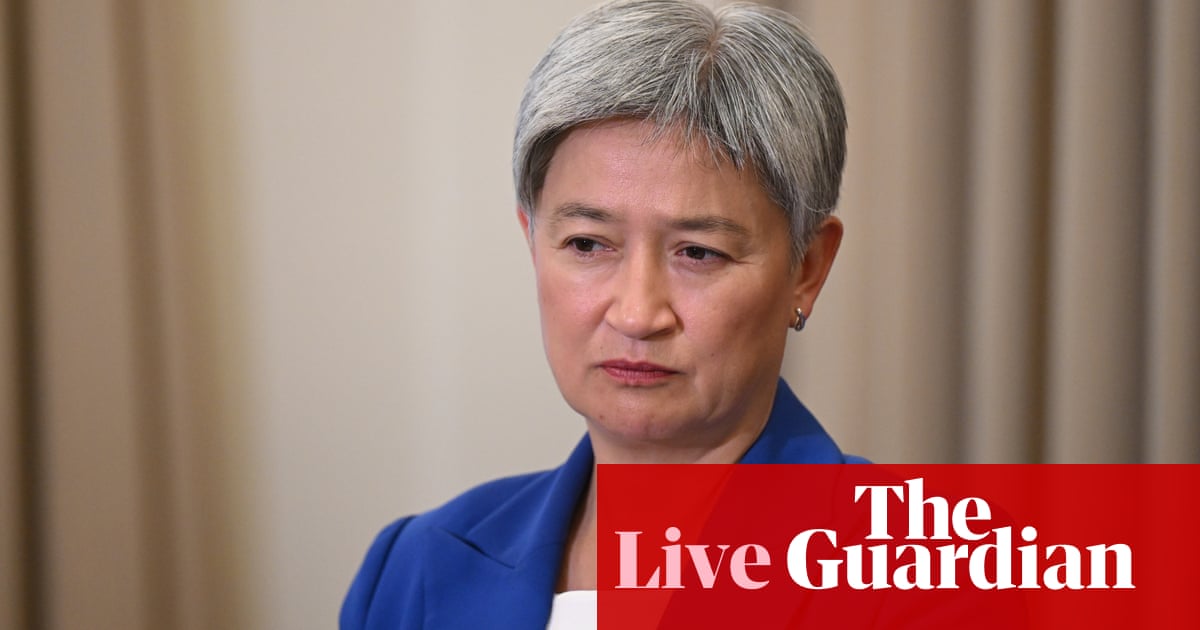Good morning. According to Donald Trump, it’s “liberation day”: the advent of a new trade order in which Americans reap the benefit of massive tariffs on imports, and the rest of the world picks up the tab.
Unsurprisingly, the United States’ trading partners tend to take a very different view. And they are doing everything they can to avoid being passive targets for the White House’s carnivorous vision of American exceptionalism.
Trump will announce his plans at 4pm Eastern Time (9pm UK) in the White House’s Rose Garden – but it is still not clear whether a flat rate will be applied globally, or if the charge will vary by country instead. Even at the last minute, countries including the UK are hoping that they might win exceptions; political leaders, and financial markets, are on edge.
For today’s newsletter, Guardian correspondents explain what the tariffs mean around the world – and when you can expect to feel the impact in your pocket. Here are the headlines.
Five big stories
-
Israel-Gaza war | Israeli Defence Minister Israel Katz announced a major expansion of the military operation in Gaza on Wednesday, saying large areas of the enclave would be seized and added to the security zones of Israel. Follow the latest here.
-
Israel-Gaza war | Some of the bodies of 15 Palestinian paramedics and rescue workers, killed by Israeli forces and buried in a mass grave in Gaza, were found with their hands or legs tied and had gunshot wounds to the head and chest, according to two eyewitnesses. The accounts add to evidence pointing to a potentially serious war crime on 23 March.
-
UK news | More than 20 women have contacted police to say they fear they may have been attacked by the serial rapist Zhenhao Zou, with detectives fearing there may be even more victims to come. Zou, 28, was convicted last month of raping three women in London and seven in China between 2019 and 2024.
-
US politics | Cory Booker, the Democratic US senator from New Jersey, has broken the record for longest speech ever by a lone senator by spending 25 hours and five minutes inveighing against Donald Trump in the chamber. Booker’s speech was intended to highlight the “grave and urgent” danger that Trump poses to democracy.
-
Cinema | Val Kilmer, the actor best known for his roles in Top Gun, Batman Forever and The Doors, has died at the age of 65. His daughter Mercedes told the New York Times that the cause of death was pneumonia.
In depth: Concessions, retaliation, ‘friendshoring’ – and a new mood of volatility
On Monday, Donald Trump told reporters that he had “settled” on a tariff plan – but according to CNN, White House officials were still presenting him with options on Tuesday. And White House press secretary Karoline Leavitt told reporters that he was “always up” for a phone call or negotiation with foreign leaders hoping to plead their case.
That suggests the satisfaction Trump takes in the power he is able to exert through the United States’ economic might. And whereas in his first term he appeared sensitive to the markets giving his economic policies the thumbs down, he seems genuinely more bullish this time around. Even on the question of whether consumers will pay more, he has so far stuck to the line that the cost will be worth it in the end.
“I couldn’t care less if they raise prices, because people are going to start buying American-made cars,” he said of tariffs on foreign cars on Sunday. And last month, of the tariffs on Canada and Mexico, he said: “We may have, short term, a little pain. People understand that.”
Here’s what that stance means around the world.
UK | What is Downing Street’s strategy?
Last night, Pippa Crerar, Heather Stewart and Richard Partington reported that the UK is ready to offer a significant reduction in its digital services tax, a 2% levy on UK revenues that applies to big American tech firms including Amazon, Meta, Alphabet, eBay, and Apple.
But while business secretary Jonathan Reynolds has insisted that the UK is in “the best possible position of any country to reach an agreement”, Downing Street acknowledges that it is unlikely to get a deal before tariffs come in on a global scale.
“They’ve been aiming at an exemption ever since Trump was inaugurated,” Pippa, the Guardian’s political editor, said – one key reason that Peter Mandelson, a trade expert, was appointed as US ambassador. “Trump has talked about ‘being nice’ to countries that ‘haven’t made a fortune’ out of the US – they hope that’s aimed at us.”
“They remain hopeful he’ll row back quickly because they say a trade deal is ready to go,” she added. “Despite what they say, the trade deal is as much or more about avoiding tariffs as having a brilliant economic relationship. So it’s a defensive move.”
As well as the digital services tax, Trump appears to view VAT as unfair. “I just don’t see how they could change that,” Pippa said. “It’s paid by all companies, not just US ones. And there’s some anger within Labour that the US is trying to interfere with domestic taxation systems.”
That speaks to some of the risks of caving to Trump’s demands. “They’re always thinking of the politics of it,” Pippa said. “But they believe that it’s worth a few bad headlines back home about sucking up to Trump to avoid the potential damage of a full blown trade war with the US which could cost our economy billions.”
Markets | What kind of impact are we seeing?
“We’ve had plenty of volatility already this year, partly because many analysts were complacent about how disruptive Trump would be,” said Graeme Wearden, who runs the Guardian’s daily business liveblog.
“Several Wall Street firms have already cut their end-of-year forecasts for the US stock market in recent weeks, which shows that some of the recent drama is being priced in. But, having seen the US president announce tariffs against Mexico and Canada, and then delay them, investors probably won’t assume the Rose Garden announcement will be the end of the story.”
MCSI’s index of global stocks showed a 4.5% fall in March, the biggest decline since September 2022. But that impact has not been evenly distributed. “There’s been a clear rotation out of US stocks this year, and into Europe,” Graeme said. “While the S&P 500 index of US shares is down 4.5% during 2025, the pan-European Stoxx 600 has jumped 6%.” The FTSE 100 has enjoyed its best quarter since 2022 as traders have looked for alternatives to US firms.
If you’re looking for other signs that this is a nervous moment, the Cboe Volatility Index (Wall Street’s “fear gauge”), has climbed by a third in the last week – and is up 50% on a year ago. That is “a sign that investors expect volatile times”, Graeme said. But he added: “It was three times higher during the 2008 financial crisis, showing that a) investors aren’t in a full-blown panic, and b) there’s room for more volatility.”
World | How are other countries responding?
The UK is not the only country to seek carve-outs from Trump’s threatened universal tariffs: Japan, for example, has tried to persuade the US its manufacturers should be exempted from the 25% car tariff, and South Korea has sought an exemption from steel and aluminium exports.
But the wider pattern is of major economic counterparts seeking to respond in kind. “Certainly the EU is expected to retaliate, and we’ve already seen Canada, for instance, hit back,” said economics editor Heather Stewart. “They’re most likely to try and pick up on specific products that hit the US without screwing up their own supply chains too much … Retaliation will tend to make the economic impact of tariffs worse; but politically, it’s understandable that countries want to look tough.”
The other major plank of the global response has been an acceleration in moves towards “friendshoring” – the strategy of reorienting trade policies towards trusted allies with a more reliable approach. China, Japan and South Korea are holding talks over a new free trade deal, for example.
“It was already happening to some extent,” Heather said, partly because of “renewed awareness of extended supply chains that came with Covid and Russia’s invasion of Ukraine. But I would definitely expect more deals that exclude the US.”
Cost of living | When am I going to start feeling the impact?
It’s still too early for the specific costs attached to tariffs to be felt in a major way by consumers – but “the price impact could already be beginning”, economics correspondent Richard Partington said. “Some economists reckon firms will raise their prices under the cover of tariffs, with the assumption that consumers think prices will rise – even if tariffs on those goods are never actually introduced.”
after newsletter promotion
While that is hard to quantify, there is evidence from the US during Trump’s first term – when the cost of clothes dryers went up because of a tariff on imported washing machines – that it is a plausible path. Something similar might happen in the UK on goods sold from the US using components sourced from overseas, Richard said – but it’s also possible that “trade reallocation”, where countries send exports that might have gone to the US to other trading partners, could lead to price cuts.
Consumers will be affected in other ways that are less direct – but no less real. There has been a marked impact on consumer confidence surveys, Richard said, and businesses are holding back on their spending plans. “The potential UK impact has been best spelled out so far by the OBR,” Richard said. “In the worst case scenario of global trade disputes escalating to include 20 percentage point rises in tariffs between the USA and the rest of the world, this could reduce UK GDP by a peak of 1%.”
That would wipe out all of Rachel Reeves’ storied fiscal headroom by the fifth year of forecasts, making tax rises in the autumn inevitable. Uncertainty is another intangible but consequential factor, he added – “like a slow puncture on the global and UK economy”. You can keep juddering on – but it’s anybody’s guess when you’ll suddenly veer off the road.
What else we’ve been reading
-
The daily deluge of news has made many people turn off their televisions, unsubscribe from papers and avoid news websites. This phenomenon of news avoidance is growing across the board. Michael Savage takes a look at how newsrooms are responding. Nimo
-
Oliver Wainwright’s writing on architecture is always compulsively enjoyable, and his review of a new student complex in Oxford meets those expectations. With “rhubarb and custard-coloured stonework” and a “bulbous roof of polygonal scales”, the overall effect is a “hallucinatory sense that you might have been swallowed into the belly of a cuddly toy”. Archie
-
Reviewing culture has had an outsized influence on my decision-making: less than a 4.5 out of 5 rating and I likely won’t go to a restaurant or buy a product. But how helpful is it really? Chloë Hamilton asks what this level of “mutual surveillance” is doing to our lives. Nimo
-
On the one hand, Daniel Lavelle has two degrees and two books to his name; on the other, he left education at 14 and started working life in a cotton mill. So where does he fit into Britain’s suffocating class system? His attempt to make sense of it all has the vital quality of thinking out loud, but no straightforward answers. Archie
-
I recently started Benjamín Labatut’s novel The Maniac and I have never felt so engrossed in a book that focusses so closely on mathematics and physics. In this disquieting book that spans a century, Labatut examines the dark foundations of our modern world and the extraordinary and troubled minds behind it. Nimo
Sport
Football | Bukayo Saka scored the decisive goal in Arenal’s 2-1 win against Fulham seven minutes after coming off the bench on his return from injury. In the night’s other Premier League matches, Nottingham Forest beat Manchester United 1-0 and Wolves beat West Ham 1-0.
Cricket | Charlotte Edwards has been named as the new England women’s head coach. The former England captain put her hat in the ring in February, when changes were expected after a disastrous tour of Australia last winter in which England lost the Ashes by 16 points to nil.
Rugby | There remains a “high degree of uncertainty” over whether tens of millions of pounds paid to rugby union clubs and other sports teams during the Covid-19 pandemic will ever be repaid, a House of Commons committee has warned. The committee said that the Department for Culture, Media and Sport has been “overly optimistic” about loans worth £474m.
The front pages
“PM offers US tech firms tax cut in return for lower Trump tariffs” says the Guardian’s splash headline, while the Telegraph’s version is “Starmer’s 11th-hour bid to halt trade war”. It’s “Trump trade madness” and “CARnage” on the front of the Mirror while the Times has “Firms told to brace for impact of Trump tariffs”. The Daily Mail finds reason to be cheerful: “Trump’s tariffs threaten crisis for Reeves” and the Express runs with “Don’t provoke new trade war that ‘makes UK poorer’,” saying Kemi Badenoch doesn’t want Starmer to retaliate. In the i they’ve gone with “UK told to ‘prepare for the worst’ as Trump begins his global trade war”. In times like these, trust the Financial Times with your money: “Investors flock to gold as fears mount on eve of Trump tariff announcement”. “Student rapist: 23 more victims” is the top story in the Metro.
Today in Focus
Could Marine Le Pen’s guilty verdict help fuel the far right?
The parliamentary leader of France’s far-right National Rally party, Marine Le Pen, has been banned from public office for five years for embezzlement, ruining her chance of a presidential run. Angelique Chrisafis reports
Cartoon of the day | Pete Songi
The Upside
A bit of good news to remind you that the world’s not all bad
Joy Ebaide, a Nigerian solo traveller, has embarked on many journeys across Africa, which all came with their own challenges. A heart-stopping encounter with a black mamba while riding her motorbike in Tanzania was terrifying, but it did not put her off travelling. Instead, it fuelled her desire to keep exploring. Ebaide embarked on a five-month solo journey from Mombasa to Lagos in 2024, riding a Tekken 250cc motorbike across Africa’s rugged terrains. Her travels, shared on social media, not only highlight the fun experiences but also shed light on the challenges faced by those with “weaker” passports.
Ebaide is not alone in her pursuit of adventure despite these obstacles. Alma Asinobi, after facing visa refusals, set out to break a world record for visiting all seven continents. “The trip itself is a victory. Because historically, travelling as a black woman has an additional layer of complexity … I just want more women to know that you can do things, and it’s OK whether it works or not: just do things,” she says.
Bored at work?
And finally, the Guardian’s puzzles are here to keep you entertained throughout the day. Until tomorrow.

